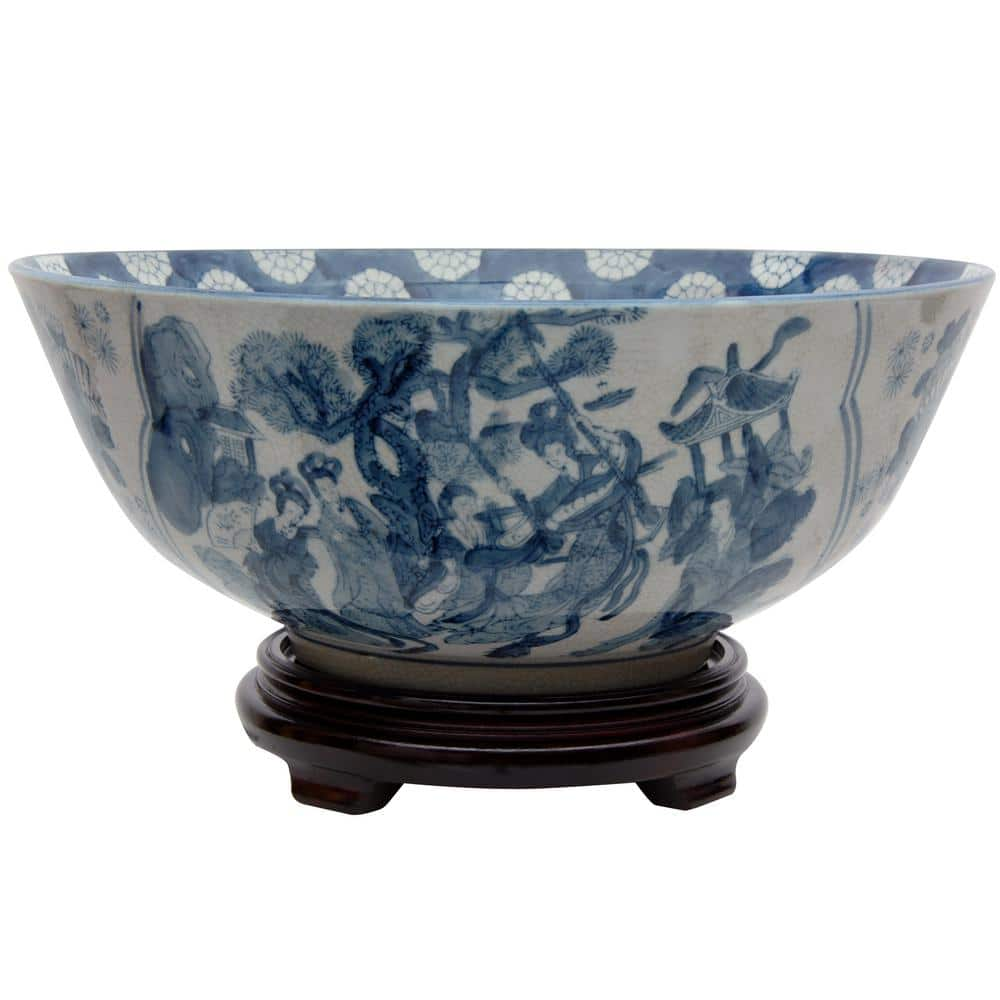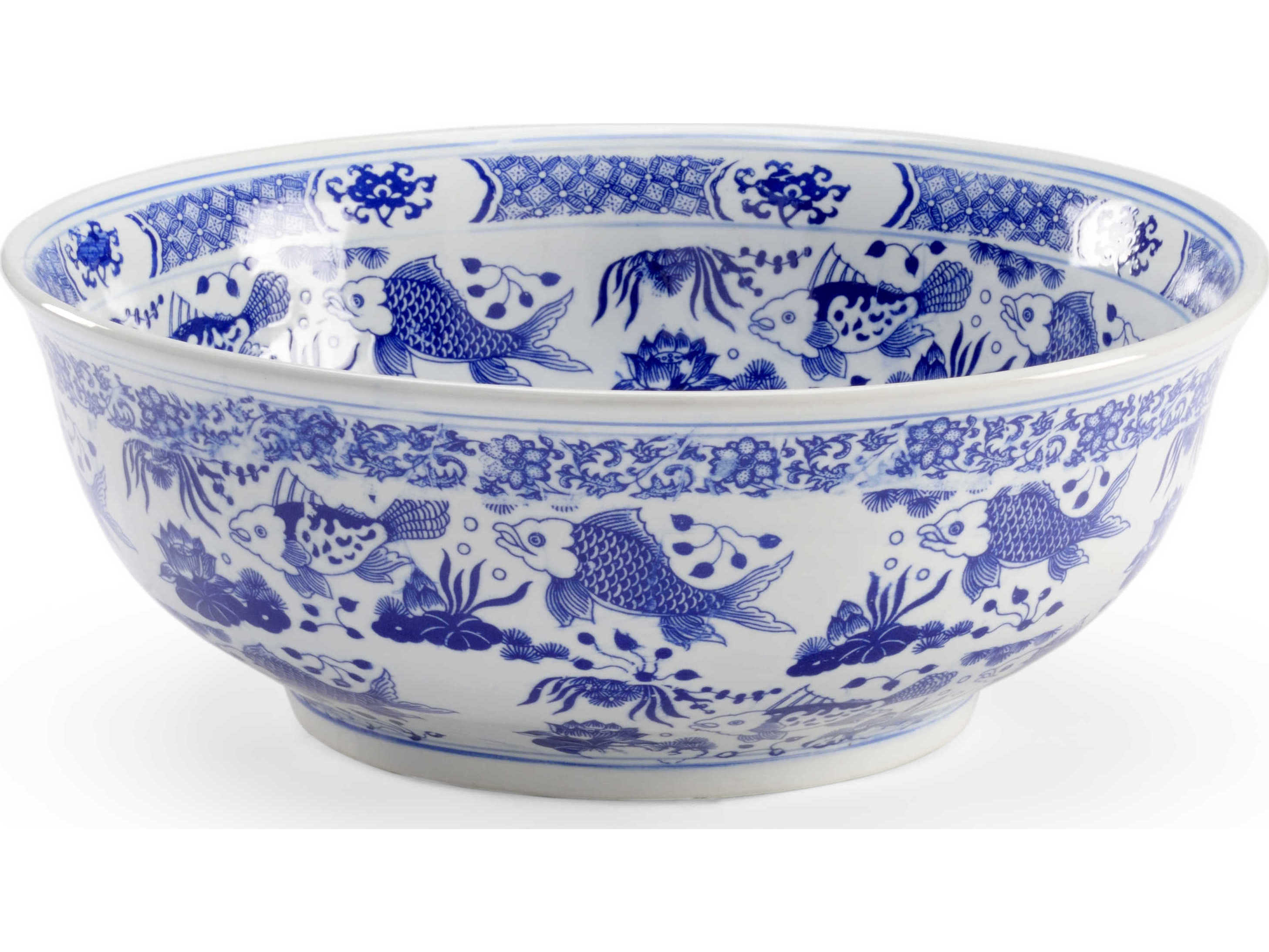Welcome to the world of blue and white decorative bowls, where elegance meets versatility! If you’re looking to enhance your home decor, these bowls are a stunning addition that brings a touch of class to any space. In this article, we’ll explore their history, styles, uses, and care tips, along with personal anecdotes that make them truly special. Let’s dive in!
Table of Contents
- History of Blue and White Bowls
- Popular Styles of Blue and White Bowls
- Creative Uses for Blue and White Bowls
- Caring for Your Decorative Bowls
- Pros and Cons of Blue and White Decorative Bowls
- Comparison of Different Styles
- FAQs
History of Blue and White Bowls
The enchanting aesthetic of blue and white ceramics dates back centuries, originating in China during the Tang Dynasty (618–907 AD). The characteristic cobalt blue ink was used on white porcelain, creating a striking visual contrast. These decorative bowls became popular in Europe during the 17th century as trade routes expanded, leading to the famous Delftware in the Netherlands and the Wedgwood pottery in England. Their timeless appeal continues to capture hearts today.
Significance in Culture
These bowls are not only decorative but also hold cultural significance. They often feature intricate designs depicting nature, landscapes, or historical events, conveying stories and traditions that have endured through generations.
Popular Styles of Blue and White Bowls
When it comes to choosing a blue and white decorative bowl, various styles cater to different tastes and home aesthetics. Here are some popular options:
1. Traditional Chinese Porcelain
Often hand-painted with elaborate motifs, traditional Chinese porcelain bowls stand out for their craftsmanship and beauty. They make excellent display pieces due to their intricate designs.
2. Delftware
Originating from the Netherlands, Delftware bowls often feature blue floral patterns. Their rustic charm adds a touch of whimsy and is perfect for cottage-style homes.
3. Farmhouse Style Bowls
These bowls have a more casual feel, often showcasing distressed finishes and simplistic patterns. They complement modern farmhouse aesthetics beautifully.
4. Contemporary Designs
For those who love modern decor, sleek, minimalist designs with geometric patterns or abstract art offer a fresh take on blue and white bowls.
Stylish Options Comparison Table
| Style | Description | Best For |
|---|---|---|
| Traditional Chinese | Hand-painted with intricate motifs | Classic and vintage decor |
| Delftware | Blue floral patterns, rustic charm | Cottage-style homes |
| Farmhouse | Distressed finishes, simple patterns | Modern farmhouse aesthetics |
| Contemporary | Sleek, minimalist designs | Modern and abstract decor |

Creative Uses for Blue and White Bowls
Beyond their aesthetic appeal, blue and white decorative bowls can serve several practical purposes in your home. Here are some creative ideas:
1. Centerpiece for Dining Tables
A large blue and white bowl filled with seasonal fruits or flowers can make a stunning centerpiece that draws the eye and sparks conversation.

2. Entryway Organizer
Use smaller bowls to hold keys, change, and other everyday items, keeping your entryway tidy and stylish.
3. Bathroom Decor
Incorporate a decorative bowl to hold essentials like cotton balls, soaps, or potpourri, adding a touch of elegance to your bathroom space.

4. Crafting Station
Use them to organize craft supplies—buttons, beads, and ribbons—making it easy to find what you need while keeping your space looking chic.
Caring for Your Decorative Bowls
Taking care of your blue and white decorative bowls ensures they remain beautiful and functional for years to come. Here are some essential care tips:

1. Regular Dusting
Dust your bowls regularly to prevent buildup. A soft, dry cloth is ideal for maintaining their shine.
2. Avoid Abrasive Cleaners
When cleaning, use mild soap and water. Avoid harsh chemicals and abrasive scrubbers to prevent scratching the surface.

3. Safe Storage
Store your bowls carefully, stacking them with soft cloths in between to prevent chipping.
Pros and Cons of Blue and White Decorative Bowls
Like any decorative item, blue and white bowls come with their benefits and drawbacks. Here’s a quick overview:

Pros
- Timeless Appeal: Their classic design fits various decor styles seamlessly.
- Versatility: They serve multiple purposes, from decor to functional items.
- Easy to Maintain: With simple care, they can last a lifetime.
- Cultural Significance: Each bowl tells a story, making them conversation starters.
Cons
- Fragility: Many blue and white bowls can be delicate and prone to chipping or breaking.
- Price Variability: Depending on the style and craftsmanship, prices can vary greatly.
- Trendy Limitations: Some may feel they fit only certain decor themes, limiting their versatility.

Comparison of Different Styles
To help you choose the perfect blue and white decorative bowl for your space, here’s a comprehensive comparison of the styles discussed:
Material Comparison Table
| Style | Material | Durability | Price Range |
|---|---|---|---|
| Traditional Chinese | Porcelain | Moderate | $$$ |
| Delftware | Ceramic | High | $$ |
| Farmhouse | Wood/Glazed Clay | High | $ |
| Contemporary | Porcelain/Stoneware | Moderate | $$$ |
FAQs
What are blue and white decorative bowls made from?
Blue and white decorative bowls are primarily made from materials such as porcelain, ceramic, or stoneware, each offering different durability and aesthetics.
Can I use blue and white bowls for serving food?
Yes, many blue and white bowls are food-safe. However, always check for specific care and use instructions to ensure they’re suitable for serving food.
How do I choose the right blue and white bowl for my decor?
Consider your overall decor theme, the size of your space, and whether you want a statement piece or something more subtle. Personal preference plays a significant role, so select a bowl that resonates with you!
Are there any specific cleaning methods for antique blue and white bowls?
For antique bowls, it’s best to avoid harsh chemicals and opt for gentle cleaning methods like using a soft cloth and warm soapy water. Always test a small area first!
Where can I buy authentic blue and white decorative bowls?
Authentic blue and white bowls can be found at antique shops, specialty home decor stores, and reputable online retailers. Always ensure that you’re purchasing from trusted sources to guarantee authenticity.